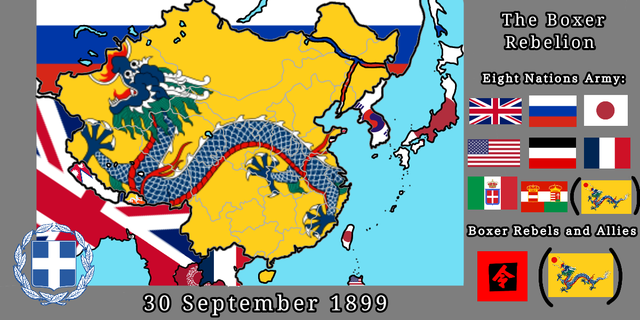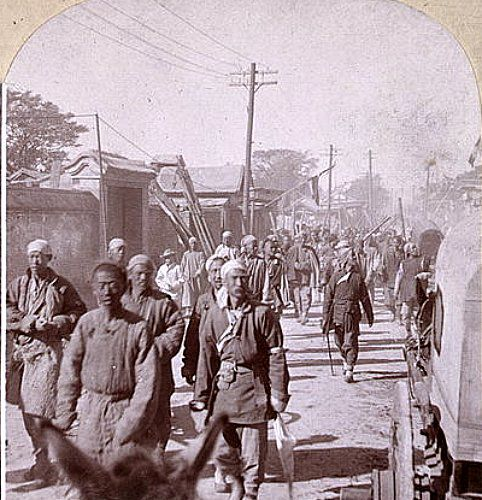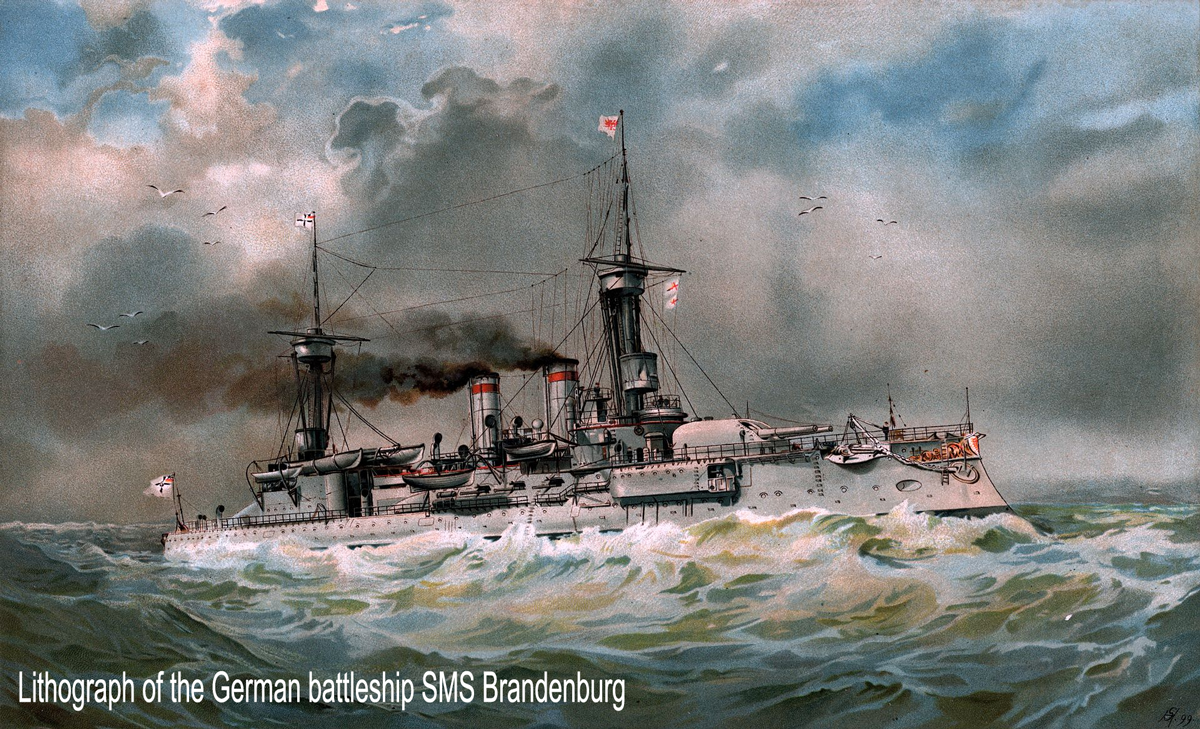1 — Known as the Yü Man-tze rebellion.
This exchange of letters with the Chinese Commander-in-Chief may
be of interest: —
25th June, 1900.
— DEAR ADMIRAL YEH,
You know the friendship I have
for you and your officers — that I identify myself with you; and you may
imagine how anxious I am that in this serious crisis the Chinese fleet should
act on lines that will conduce to its honour as well as to the best interests
of your country. The seriousness of the situation lies in the fact that the
initial successes of a bloodthirsty and ferocious fanaticism will lead not
only the common people but also many officials to believe that the Boxer
programme will be carried out, and the foreigners driven into the sea. It
is only men who know the power of Western nations — like yourself — who
will realize the utter futility of the attempt; the whole world is against it.
The Boxers and the officials, officers and soldiers who join them, are greater
enemies to their own country than they are to the foreigner. True patriotism lies in putting down this madness and substituting sanity.
I see clearly
that your proper course is not merely to look on and be passive, but to take
such action as may be possible to combat the spread of the Boxer movement.
You must, however, expect that at Shanghai the collection of your fleet will
be looked upon with some suspicion. The Consuls, I am sure, know how
you and your Captains are on the side of law and order, but the community
generally is liable to be apprehensive; and, when you remember that your
Government itself has grossly violated the sacred rights of diplomats, it is
not much to be surprised at . . . —
(etc.)
H.I.M.S. Hai Yung,
Off Taku Bar, 4th July,1900.
— My DEAR MR.
TYLER,
Many thanks for your kind and considerate letter.
My duty with
this fleet is to maintain friendly relations with all foreign powers and to be
on the side of law and order. The Captains under my command know
well how to carry out my instructions. The ships which entered Shanghai
harbour were for coaling only. They are now distributed along the
Yangtsze valley to protect the lives and property of foreigners. The Haichi
was at Miautau last week and had all the Tengchow missionaries on board
for safety. She towed the American battleship Oregon, which had struck
on a pinnacle rock between Howki and Miautau Island, out of danger. The
Hai Yung is detained here by the Admirals of the foreign powers, so the
situation of myself is most unfortunate. The insane action of our Government is one of a most peculiar character. I hope the final settlement will soon arrive, but the terms will be a very difficult question . . . —
(etc.)


 frenzied gesturing to render them invulnerable, gave themselves
the name of Ihochuan or Boxers. And Yii-hsien actively and
openly encouraged them in their hostility to missionaries and
other foreigners and in their slaughter and pillaging of converts.
frenzied gesturing to render them invulnerable, gave themselves
the name of Ihochuan or Boxers. And Yii-hsien actively and
openly encouraged them in their hostility to missionaries and
other foreigners and in their slaughter and pillaging of converts.
